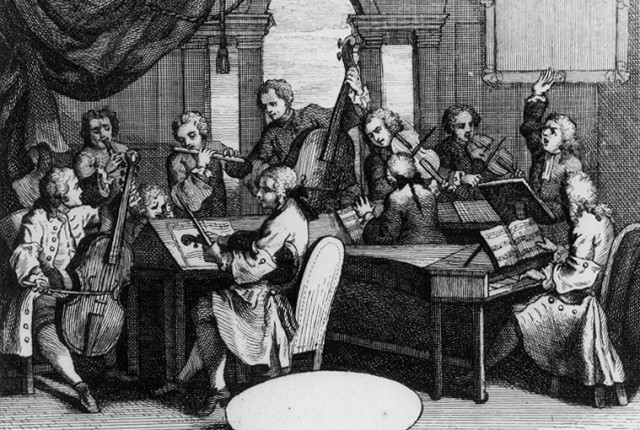
The Center for 17th- & 18th-Century Studies has received funding from UCLA’s Office of Interdisciplinary & Cross Campus Affairs in support of its collaborations with UCLA’s School of Theater, Film and Television and Herb Alpert School of Music, as well as UCI’s School of Humanities and Claire Trevor School of the Arts. In 2016–17 the Center is sponsoring several conferences for which performances play a significant role in the interdisciplinary explorations of the programs’ topics. The partnerships will afford (1) a master class on the Pilgrim Scene from Romeo and Juliet, with singers from Opera UCLA directed by Peter Kazaras and actors from the UCLA Department of Theater directed by J. Ed Araiza; (2) a workshop—“Acting Shakespeare”—given by Eli Simon (UCI School of the Arts); and (3) a performance of 18th-century music by students from the UCLA Herb Alpert School of Music.
The first series of conferences to benefit from a collaboration with the UCLA and UCI performing arts schools is Entertaining the Idea, which will stage a series of encounters between performance and philosophy in Shakespearean drama, encounters designed both to illumine the plays in their poetic and theatrical amplitude and to explore what philosophy and performance might offer each other in 21st-century literary studies. The organizers, who hail from three UC campuses, aim to take up drama’s capacity to enhance experience, extend attention, exercise judgment, test existential limits, and assert common bonds. The opening session (Fall 2016) explores the concepts of entertainment, acting, acknowledgement, hospitality, and ways of life. The second session (Winter 2017) addresses the international migrations of Romeo and Juliet and the philosophical repercussions wrought by translation, adaptation, and media transfer. The final session (Spring 2017) queries the limits of performance in an exploration of King Lear on stage and off.
Music and Theater in Eighteenth-Century Britain, a two-day conference in November 2016, places music center-stage in the debates about theatrical taste in 18th-century Britain. While music had always been important to the theater, the status of musical entertainment became increasingly fraught as the duopoly of the patent theaters was eroded and the Licensing Act of 1752 enabled minor theaters to purchase annual licenses to produce entertainments containing no spoken dialogue. More scholarly attention is being given to the activities of minor and illegitimate theaters (both licensed and unlicensed) and to genres that catered to the popular taste for music-based entertainment. By bringing together a group of leading scholars, the narratives of the 18th-century theater—which have often treated music as a decorative ornament to the serious business of spoken-word drama—can be reexamined. The conference attempts to reconceive the history of 18th-century British theater by placing music at its heart, exploring the importance of music to the 18th-century stage and theatrical songwriting traditions to the history of music in Britain.
All students (with ID from any school, college, or university), Center & Clark Affiliated Faculty, and UC faculty and staff may attend the conferences, master class, workshop, and musical performance for free.

